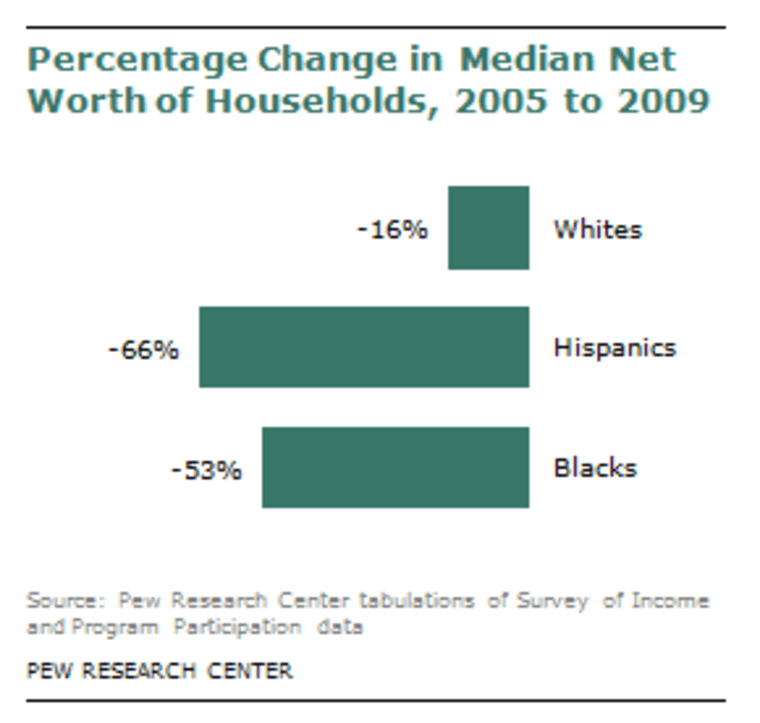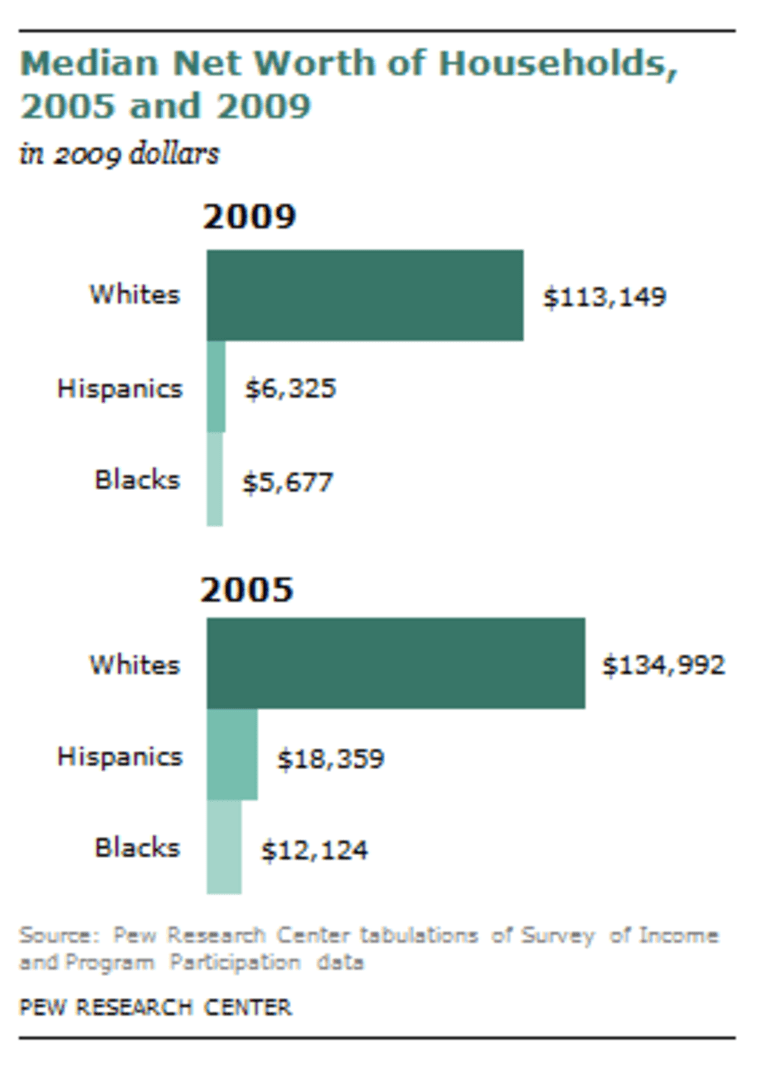Today ended up being a really bad day for income disparity news.
The Pew Research Center released new information about the median wealth of white, black and Hispanic households in the U.S. According to the study:
The median wealth of white households is 20 times that of black households and 18 times that of Hispanic households, according to a Pew Research Center analysis of newly available government data from 2009.These lopsided wealth ratios are the largest since the government began publishing such data a quarter century ago and roughly twice the size of the ratios that had prevailed between these three groups for the two decades prior to the Great Recession that ended in 2009.
And one of the even more distressing pieces of news from the finding was that the bursting of the housing bubble and the recession hit minorities the hardest.

We know that there's also a staggering jobs disparity between the white, black, and Hispanic communities. While the general unemployment rate is now 9.2 percent, the African-American unemployment rate is at 16.2 percent and slightly higher for African-American males.
And according to that CBS News story: "For young men of color, especially black males in New York City...34 percent of New York's young black men age 19 to 24 are not working."
Before meeting with the National Urban League's Marc Morial and the NAACP's Ben Jealous, President Obama received criticism from members of the Congressional Black Caucus for not tackling African-American unemployment more aggressively.
"These findings are based on the Pew Research Center's analysis of data from the Survey of Income and Program Participation (SIPP), an economic questionnaire distributed periodically to tens of thousands of households by the U.S. Census Bureau," the release says.
